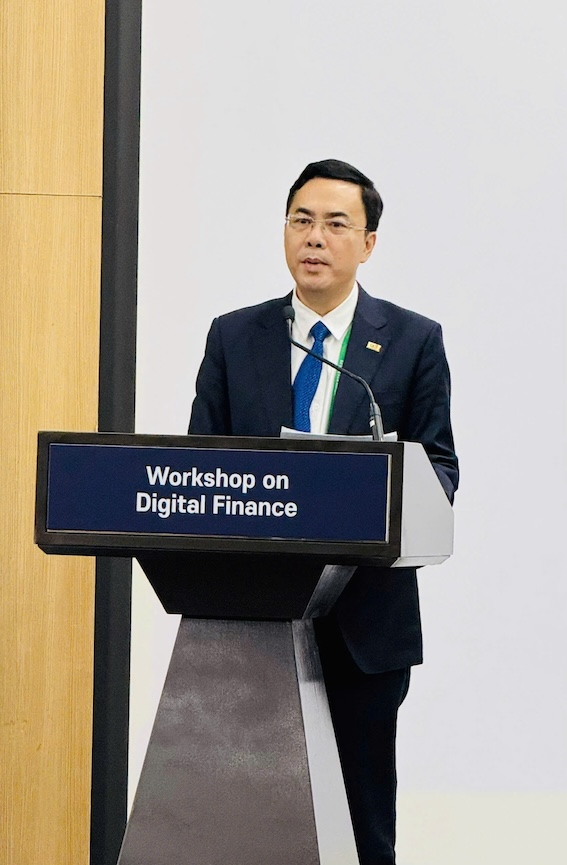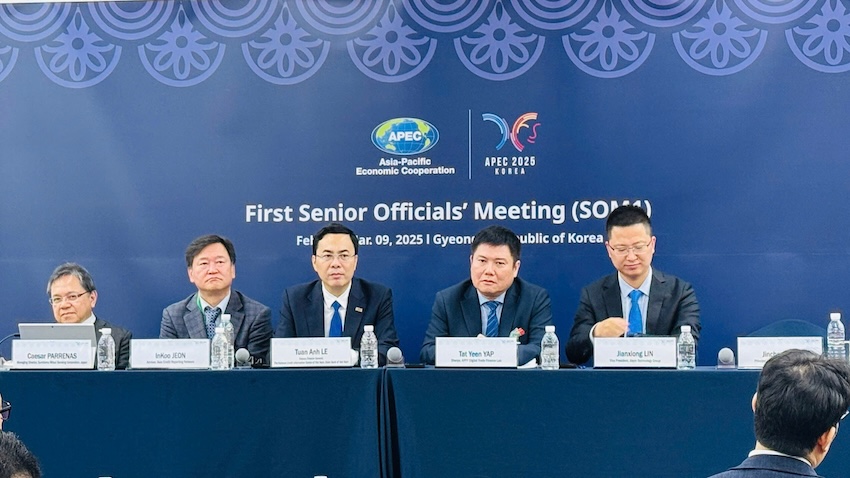The workshop on Digital Finance at APEC 2025 "The impact of banking digitalization on financial and financial innovation" focused on 02 main contents on (1) Digital finance and innovation in the banking system" and (2) New data ecosystem for safe and comprehensive digital finance.
Within the framework of the program, through the perspective of experts, speakers from many international financial institutions shared their views and practical experiences on the impact of technology on the banking system, data security, consumer protection, etc.

Important contents at the Workshop:
(1) Open Finance: An open financial model, allowing individuals and businesses to access, share, and manage their financial data proactively and transparently through digital platforms; helping to promote competitiveness, enhance financial access and support technological innovation in the financial industry.
(2) My Data: Advanced personal data management model, allowing data subjects to control, manage and use their data, proactively decide on sharing their data with financial institutions to receive more suitable services.
(3) Digital financial process: Through the application of Big Data technology, artificial intelligence (AI) and Blockchain technology, this process digitizes financial activities, helps automate, optimize service provision processes, improve operational efficiency and ensure information security.
(4) Protecting consumers in the digital financial ecosystem: In parallel with the development of technology in general and the digital financial ecosystem in particular, risks to privacy and cybersecurity are also becoming increasingly complex and unpredictable. To solve this problem, the speakers presented and analyzed a number of key strategies such as standardizing technical standards, strengthening surface security control, perfecting data licensing processes, supporting financial education initiatives.
(5) New data ecosystem in financial services: Ensure to meet all 04 factors, including: Trust in data and analytics (D&A), the development of third-party data providers, modern data infrastructure, personal data governance.

Speaking at the Workshop, Mr. Le Anh Tuan - Deputy General Director of CIC - shared some contents on the challenges of financial access for small and medium enterprises (SMEs) and the role of new data, especially for businesses in developing countries, where businesses often lack an official credit history, making it difficult for financial institutions to assess risks.

Practice in Vietnam shows that although CIC and private credit information companies have performed well in functions such as diversifying credit information products and services, including value-added products such as scoring, credit ratings, supporting risk management and debt collection, etc., it is inevitable that the strong impacts of rapid digital transformation and the urgent need to promote digital finance will continue, when there are still about 30% of the adult population without a credit history in Vietnam.
Therefore, it is necessary to (1) to collect alternative data sources such as data using electricity, water, logistics, accounting ... (2) Researching and applying new types of data infrastructure such as AI, machine learning, cloud computing, blockchain, open bank and sharing data through open APIs, data analysis ... (3) new data infrastructure support (2024 Data Legal Support The Draft Law on Protection of personal data, decrees on products and data services, decrees on products and services of analysis and synthesis of data and testing mechanisms that control financial technology activities in the coming time).
Lessons for CIC in the coming time:
(1) Focus on investing in upgrading the IT technology platform, applying AI, machine Learning, Big Data to TTTD activities, ensuring compliance with the digital transformation orientation of the State Bank according to Resolution No. 57-NQ/TW dated December 22, 2024 of the Politburo on digital transformation in the banking industry.
(2) Proactively research and propose mechanisms to connect new data sources and build modern data infrastructure.
(3) Strengthen cooperation with organizations with experience in analyzing and applying data to improve the quality of TTTD products and services.











